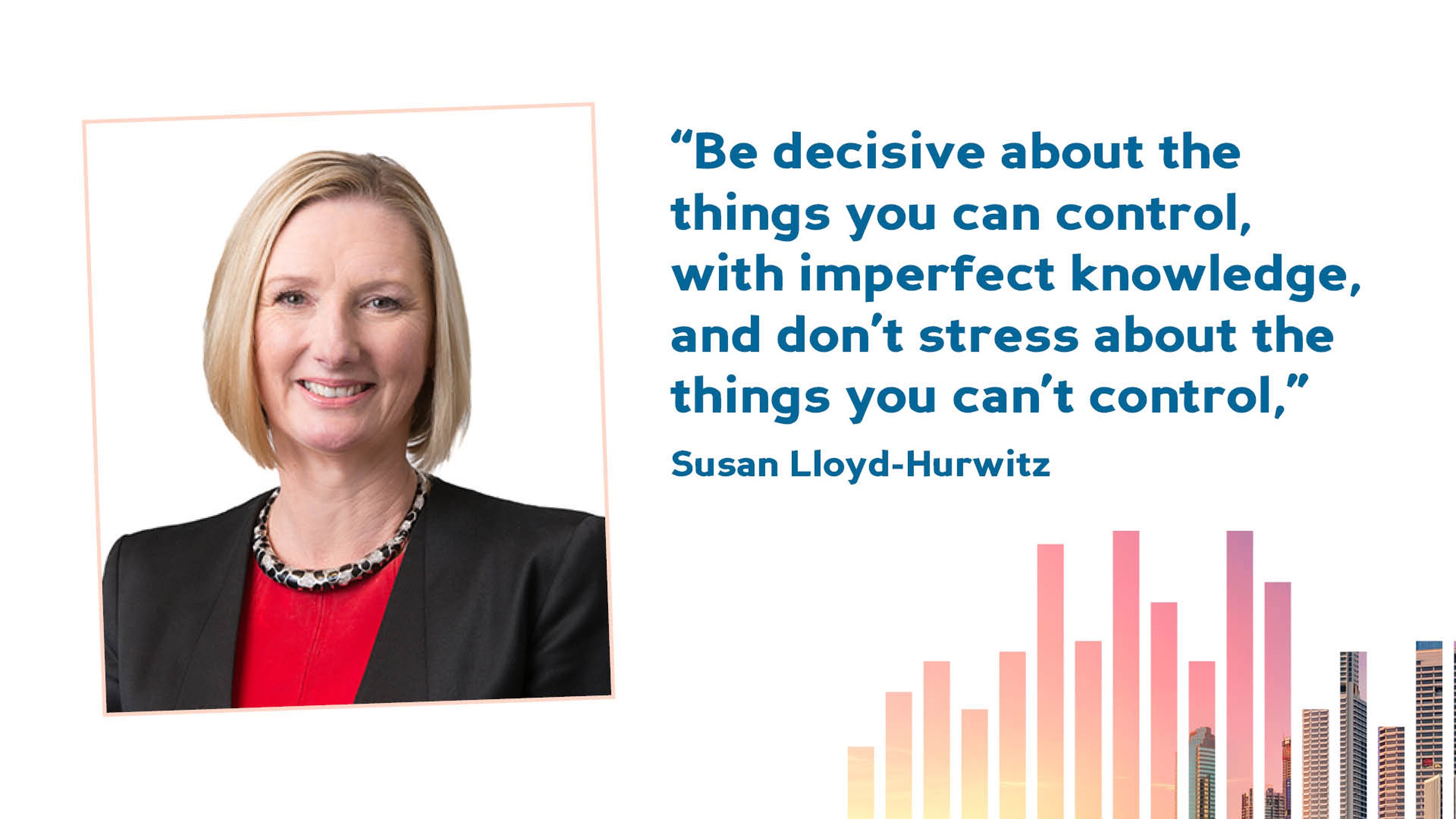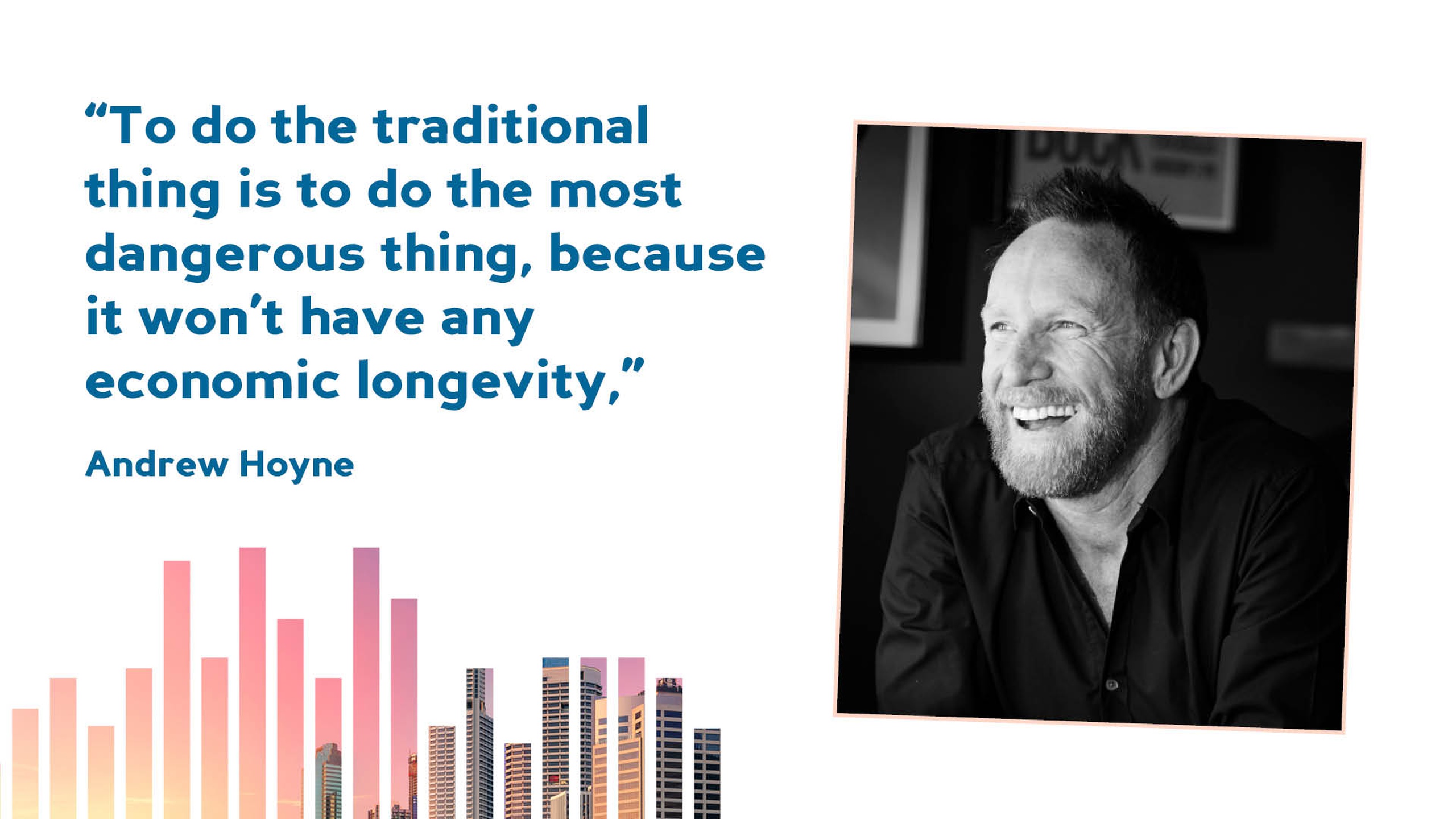Transform Online - Day two wrap
26 Mar 2020
Transform Day 2 - Wednesday 25 March 2020
Sharing innovations and solutions
We kicked off Day 2 with an exploration of New York City’s world-leading plan to cap carbon on more than 50,000 buildings – equivalent to 60% of the city’s gross floor area. Speaking to us from the Big Apple, Urban Green Council's John Mandyck called the plan the “biggest disruption” in the city’s history. New York was taking action because $3 trillion in property is vulnerable to climate change. “That’s twice the GDP of Canada, so a lot is at stake.” But the opportunities are just as big. The potential of the retrofit market to create $20 billion in value and 141,000 jobs in the next decade will “spur new technology, business models and ideas,” John said.
International insights: How circularity can drive change and responsible business
James Close, Head of Program at Circular London, encouraged us to “think about the circular economy as a new economic system”. The potential in the built environment is extraordinary – nine million tonnes of London’s 17 million tonnes of waste each year comes from construction. Circular London’s Accelerator is working with a host of inspiring start-ups. Chip[s] Board is transforming potato waste into particulate composite board and bioplastic. Sustainability Cloud offers real-time, on-demand concrete that would normally be destined for landfill. And Biohm has created mushroom-based building insulation that consumes waste as it grows, James said. Adopting circular thinking can help us deal with “stubborn emissions”, use materials “in a more intelligent way” and create “enormous opportunities” for small business.

Ensuring positive change in Australia
Next, we gained a shot in the arm from the GBCA’s inspiring chair Susan Lloyd-Hurwitz, who talked about our industry’s ingenuity and inventiveness as we “flip” to new ways of working overnight. Mirvac is certainly marching through this period. “We are still selling residential apartments, settling apartments… a DA just came through and business is operating… at a different cadence, but it is operating,” Susan said. Mirvac’s board has just approved $43 million to commence construction at Ascot Green in Brisbane, a “brave, confident move from a board”. Susan remained optimistic that the “drumbeat of sustainability” would not falter. “Nobody would be willing to walk backwards [on sustainability],” she said. And besides, what we are doing isn’t “green theatre” – it delivers real value to lives, businesses and the bottom line.
Future Green Leader
We were excited to crown our 2020 Future Green Leader: Stella Matulessya. Stella was chosen for her passion, technical knowledge and ability to communicate and engage with a range of stakeholders. As RMIT’s environmental management advisor, Stella is embedding sustainable design in RMIT’s capital development program, managing and reducing operational waste generation, and maintaining the ISO 14001 certified environmental management system. Announcing the award, our inaugural FGL, Rory Martin from Frasers Property Australia, said the judges “could feel Stella’s infectious enthusiasm and passion for sustainability”.
How do we drive business to a sustainable future?
We were truly privileged to hear from Bob Carr, former Premier of NSW and Professor of Climate and Business at UTS. Our great challenge as a species is to “manage more than one big problem at once,” Bob said. Would we be able to achieve that? Certainly, the current “pandemic panic” and ensuing “economic shakeout” pointed to a way forward for our biggest emitters, China and the US, to work together to solve our climate challenges. But regardless of how the Covid-19 crisis played out, we could not underestimate the “personal conviction of business leaders answerable to their children” as well as the “hard-headed economic calculation” that businesses, shareholders and insurers were making as they moved away from stranded assets.
Breakouts: From risky business to water management
Breakout sessions acknowledged the challenges of operating in tumultuous times but also underscored the willingness of people in all sectors of the economy to think differently – whether insuring in a flood or fire-prone area or finding new ways to manage our most precious water resources.

Social value panel
The last 10 years had been a “decade of reckoning” said Helen Steel, CEO of the Shared Value Project. Companies now had a “moral responsibility” to think long-term, and the leaders understood that ethics were “fundamental” to how organisations “make decisions and why they make decisions”. Lendlease’s Ro Coroneos agreed. She said we were witnessing a “recalibration” as events like the bushfires and Covid-19 reset the business agenda. “Businesses are being called upon to be more thoughtful about the vulnerable stakeholders in our communities,” Ro said. The speed at which we must respond is challenging – which is why the partnership is central. Placemaking specialist Andrew Hoyne also urged the audience to move away from business-as-usual. “To do the traditional thing is to do the most dangerous thing because it won’t have any economic longevity,” he said.
The role of Indigenous culture in building future Australia
“Australian design is 80,000 years old – and we can all be a part of that,” said Alison Page, founder of the National Aboriginal Design Agency. Alison believes the “next big wave” for building projects is traditional knowledge. When she started out in design, engaging with Indigenous people meant “slapping Aboriginal art onto things”. Our opportunity is to consider the meaning behind the symbols. “Ask yourself: ‘what is behind the dots?’. That is when you get into a very deep world of traditional knowledge.” Alison talked about songlines – the invisible lines that trace astronomical and geographical elements in ancient stories and that have helped shape the landscape. “Anyone interested in creating environments for people… can add to the songlines that are already mapped in a vast network across the country.”
Wrap up
Our Chief Executive Officer Davina Rooney wrapped up two transformative days by thanking everyone for joining us from their lounge rooms and home offices and reminded us that “physical distance, not social distance” that keeps us apart for now. Despite the challenges we face, we can never forget the personal conviction that business leaders are answerable to their children, Davina said. “That is something I felt acutely when my eight-year-old son asked why he couldn’t breathe during the bushfire crisis and what was I going to do about it?” Davina urged our online audience to “take our passion and commitment to change and drive it forward into the future” as we “reset, rethink and rebuild”.